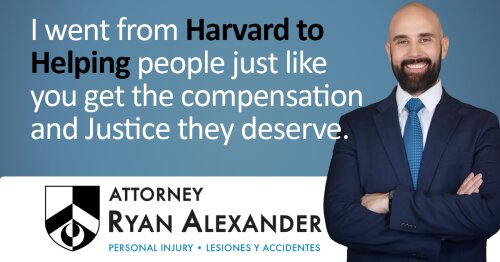Best Disability Insurance Lawyers in Las Vegas
Share your needs with us, get contacted by law firms.
Free. Takes 2 min.
List of the best lawyers in Las Vegas, United States
About Disability Insurance Law in Las Vegas, United States
Disability insurance law in Las Vegas sits at the intersection of federal and state rules. Federal programs such as Social Security Disability Insurance - SSDI - and Supplemental Security Income - SSI - provide benefits based on strict eligibility criteria that apply nationwide. At the same time, private disability insurance policies and employer-provided plans are regulated by state law and by federal statutes such as ERISA when the plan is employer-sponsored. Nevada state law governs workers' compensation claims for job-related injuries and the procedures employers and insurers must follow. Understanding which program covers your situation is the first step in asserting your rights and pursuing benefits.
Why You May Need a Lawyer
Disability claims often involve complex rules, strict deadlines, and dense medical and legal evidence. You may need a lawyer when:
- Your claim for federal benefits such as SSDI or SSI is denied and you need to file an appeal or prepare for a hearing.
- Your private disability insurer denies benefits, terminates ongoing benefits, or disputes the medical basis for your claim.
- Your employer or insurer is not following Nevada workers' compensation laws after a work-related injury.
- You must pursue an ERISA appeal for an employer-sponsored disability plan, where the standard of review and procedural requirements are different from state claims.
- You face complex issues like vocational capacity, conflicting medical opinions, or the need to gather and present substantial medical records and vocational evidence.
In these situations a lawyer can explain the applicable rules, gather evidence, prepare persuasive legal arguments, represent you at hearings, and help protect your deadlines and rights.
Local Laws Overview
Key legal frameworks that affect disability insurance in Las Vegas include:
- Federal Social Security rules - SSDI and SSI are administered by the Social Security Administration and have uniform national eligibility and appeals procedures.
- ERISA - Employer-sponsored disability plans may be governed by the Employee Retirement Income Security Act - ERISA - which imposes federal standards and can limit remedies compared with state law.
- Nevada workers' compensation - Nevada Revised Statutes - NRS - Chapter 616 governs workers' compensation benefits for job-related injuries and illnesses. Clark County employers and insurers must follow Nevada procedures for reporting, treatment, and benefit payments.
- Nevada insurance regulation - The Nevada Division of Insurance oversees licensing, market conduct, and consumer complaints for private insurers in the state.
- Disability accommodation and anti-discrimination laws - The federal Americans with Disabilities Act - ADA - protects qualified individuals from disability discrimination. Nevada state laws and enforcement bodies may provide additional protections for employment and public services.
Procedures and remedies differ by program. Federal benefits follow SSA timelines and appeals processes. ERISA cases are often decided on the administrative record with limited discovery. State workers' compensation matters use administrative processes and can involve hearings before the Nevada Appeals Officer or district court review in some circumstances. Because of these differences, the right legal approach depends on which program covers your claim.
Frequently Asked Questions
What types of disability insurance are available?
There are several common types: federal programs (SSDI and SSI), employer-provided long-term and short-term disability plans, individual private disability insurance policies, and workers' compensation for job-related injuries. Each type has different eligibility rules, benefit structures, and legal procedures.
How do I know if I qualify for Social Security Disability Insurance - SSDI?
SSDI eligibility requires that you have a qualifying disability that prevents substantial gainful activity and that you have enough work credits from prior employment. SSA evaluates medical evidence, the severity and duration of your impairment, and whether you can perform past work or other work available in the national economy.
What is the difference between SSDI and SSI?
SSDI is based on work history and payroll contributions - you must have earned sufficient credits. SSI is needs-based and provides support to disabled adults and children with limited income and resources. Eligibility rules, application processes, and review standards differ between the two programs.
How long does it take to get disability benefits?
Timing varies widely. Initial decisions on SSDI or SSI claims often take several months. Denials are common at first, and appeals - which can include hearings before an administrative law judge - can take many months to over a year. Private plan decisions and workers' compensation outcomes also vary depending on case complexity and medical development.
What should I do if my disability claim is denied?
Act quickly and carefully. For federal claims you must file an appeal within SSA deadlines - typically starting with a request for reconsideration or hearing. For private plans and ERISA claims you must follow the plan's appeal procedures and observe time limits. Gather and submit additional medical evidence, work with medical providers to clarify records, and consider consulting an attorney experienced in the particular type of disability claim.
Can an employer cancel my private disability insurance?
Employers can change or terminate employer-provided plans under certain conditions, but federal law and plan terms control how changes apply to current claimants. For individual policies purchased by you, cancellation or nonrenewal is governed by state insurance regulation and your policy language. If benefits are already being paid, termination must comply with policy terms and applicable law.
How does ERISA affect my private disability claim?
If your disability plan is governed by ERISA, federal law will control claim procedures and remedies. ERISA often limits damages to the benefits owed under the plan and imposes rules about administrative record review. You may have to exhaust internal appeals before filing a federal lawsuit, and litigation standards can differ from state-law claims.
Do I need a lawyer to appeal a denied Social Security claim?
You are not required to have a lawyer for SSA appeals, but many claimants use attorneys for hearings before administrative law judges. Experienced disability attorneys can help collect medical evidence, prepare for hearings, and present testimony. For federal benefits, attorneys typically represent clients on a contingency-fee basis, subject to approval by the SSA.
How are attorney fees handled in disability cases?
Fee arrangements vary by case type. For Social Security disability claims there is a statutory fee process with attorneys often paid as a percentage of past-due benefits and subject to SSA approval. For private insurance, ERISA, or workers' compensation matters, attorneys may work on contingency, hourly, or flat-fee bases. Always get fee agreements in writing and ask about who pays costs for expert reports or appeals.
What evidence is most important to support my disability claim?
Medical records from treating providers, objective test results, imaging, functional assessments, and consistent clinical notes are critical. Work and vocational history, daily activity descriptions, treatment history, and statements from doctors, family, or employers can strengthen a claim. Gaps in treatment or inconsistent statements may weaken a claim, so organize records carefully and be prepared to explain discrepancies.
Additional Resources
Social Security Administration - local Las Vegas offices and national SSA resources for SSDI and SSI applications and appeals.
Nevada Division of Insurance - oversees insurance licensure, consumer protections, and complaint handling for private insurers.
Nevada Department of Employment, Training and Rehabilitation - state programs for vocational rehabilitation and employment support for people with disabilities.
Nevada workers' compensation resources - state guidance on filing and managing workplace injury claims under NRS Chapter 616.
Disability Rights Nevada - advocacy, rights information, and assistance for people with disabilities in Nevada.
Legal Aid Center of Southern Nevada and Nevada Legal Services - providers of low-cost or no-cost legal help for eligible individuals.
Nevada State Bar - lawyer referral service and resources to check attorney credentials and find local specialists in disability law, ERISA, or workers' compensation.
National organizations such as the National Organization of Social Security Claimants' Representatives - resources for claimants and lists of experienced advocates.
Next Steps
1. Identify which program applies to your situation - SSDI, SSI, private disability, ERISA, or workers' compensation. Each has different rules and deadlines.
2. Gather all medical records, treatment notes, test results, work history, and any employer or insurer communications. Organize them chronologically and keep copies.
3. Contact the appropriate agency or insurer to confirm claim status and deadlines. For federal benefits check SSA procedures; for private plans review your policy and plan documents; for work injuries follow Nevada workers' compensation reporting steps.
4. Consider a legal consultation - many disability lawyers offer free or low-cost initial consultations. Prepare specific questions about experience with your type of claim, fee arrangements, expected timeline, and likely outcomes.
5. Preserve deadlines - appeals and filing time limits can be short. If you are near a deadline, seek legal advice immediately to avoid losing rights.
6. Use local resources if you need low-cost help - legal aid organizations, disability advocacy groups, and state agencies can provide guidance or referrals.
7. Keep detailed records of all communications with medical providers, insurers, and government agencies. Document dates, names, and summary of conversations.
If you decide to hire a lawyer, ask about their experience with the specific benefit program, success rate, typical timelines, and who will handle your case. Choosing an attorney with local experience in Las Vegas and Nevada law can make a meaningful difference in how your claim is handled and resolved.
Lawzana helps you find the best lawyers and law firms in Las Vegas through a curated and pre-screened list of qualified legal professionals. Our platform offers rankings and detailed profiles of attorneys and law firms, allowing you to compare based on practice areas, including Disability Insurance, experience, and client feedback.
Each profile includes a description of the firm's areas of practice, client reviews, team members and partners, year of establishment, spoken languages, office locations, contact information, social media presence, and any published articles or resources. Most firms on our platform speak English and are experienced in both local and international legal matters.
Get a quote from top-rated law firms in Las Vegas, United States — quickly, securely, and without unnecessary hassle.
Disclaimer:
The information provided on this page is for general informational purposes only and does not constitute legal advice. While we strive to ensure the accuracy and relevance of the content, legal information may change over time, and interpretations of the law can vary. You should always consult with a qualified legal professional for advice specific to your situation.
We disclaim all liability for actions taken or not taken based on the content of this page. If you believe any information is incorrect or outdated, please contact us, and we will review and update it where appropriate.









